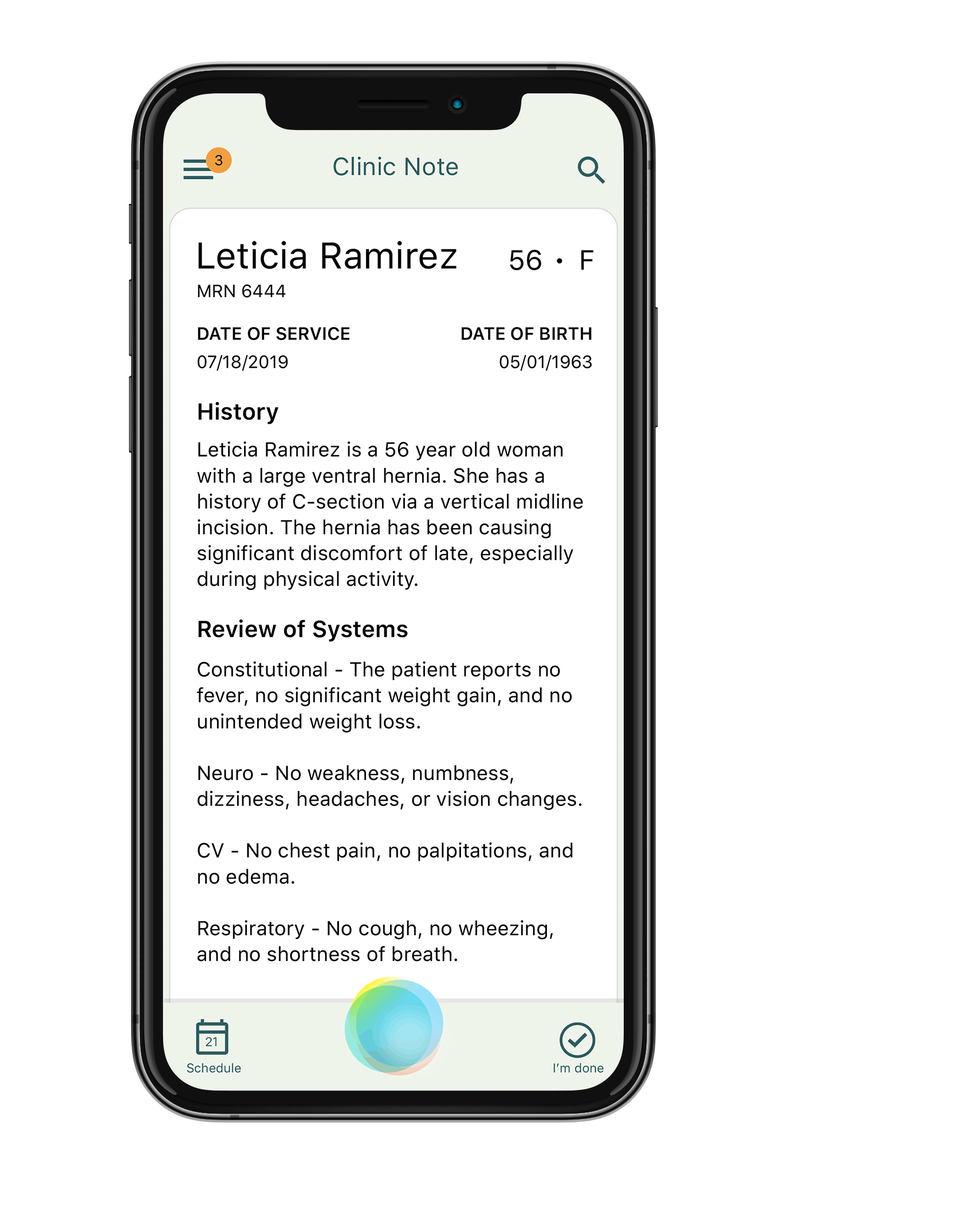
Physicians’ notes appear in the Suki app.
Artificial intelligence is increasingly being used in healthcare not only for decision support but to reduce the administrative burden that contributes to physician burnout. To ease the burden, AI-powered voice solutions like Suki are working to reduce doctors’ documentation workload and improve access to patient information.
Jallel Harrati, senior vice president of sales and marketing at Suki, compares the Redwood City, California-based company’s flagship application Suki Assistant to Apple’s Siri, but for doctors. As Suki seeks to continually improve the functionality of its digital assistant, the company announced last week that it had added new voice-enabled capabilities.
Those “show me” commands allow clinicians to quickly retrieve patient information ranging from vital signs and medications a patient is taking to their allergies and medical and surgical histories. Doctors don’t need to be in the office or in a patient’s EHR to access the information, either. Instead, they can access it all in a secure, HIPAA-compliant way through an app on their mobile devices, the company said.
Suki’s competitors include companies like Nuance (acquired by Microsoft), which provides speech recognition tools for clinical documentation, and Notable, which raised $100 million last year to automate administrative tasks.
“We don’t position Suki as superior,” Harrati said.
Instead, Suki tries to distinguish itself from other voice solutions by being a uniquely easy add for physicians that’s affordable (at $199 per month per provider license) and intuitive.

A Deep-dive Into Specialty Pharma
A specialty drug is a class of prescription medications used to treat complex, chronic or rare medical conditions. Although this classification was originally intended to define the treatment of rare, also termed “orphan” diseases, affecting fewer than 200,000 people in the US, more recently, specialty drugs have emerged as the cornerstone of treatment for chronic and complex diseases such as cancer, autoimmune conditions, diabetes, hepatitis C, and HIV/AIDS.
“The idea behind Suki Assistant is that it can help clinicians extract information from the EHR, tackle clinical documentation, and do that in a very natural way,” Harrati said. “The ease of use of the application I think is unparalleled in healthcare. Suki is a consumer-grade solution. … It takes 45 minutes or less to get a user up and running.”
The app doesn’t require special equipment and comes with 24/7 support. What the company doesn’t have is lots of people behind the scenes who transcribe a doctor’s dictated notes or perform other functions.
“Because we are using tech and not using humans in the loop or in the background to tackle some of these tasks, we can bring to the market a solution that is affordable for the masses,” Harrati said.
Even with that kind of singular reliance on technology, he insists that the accuracy of the product is strong and gets better over time.
“Those are the promises of AI and machine learning—the more you use it, the more we understand the way you’d like to use the application and adapt to a variety of idiosyncrasies,” Harrati said.
For example, the technology adapts to better understand terminology, specialized language and a person’s accent, he said.
Suki’s ultimate vision is to make healthcare technology assistive and invisible, “so clinicians can do what they love – which is take care of patients,” Harrati said.
Photo: Suki













